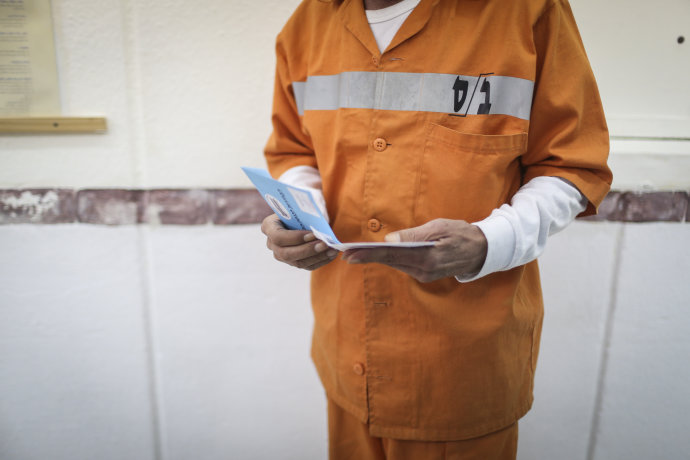In one of her first high-profile appearances, relatively new Chief Public Defender Anat Meyassed Cnaan on Tuesday night told the Israel Bar Association Conference in Eilat that the Israeli legal system is still mistreating defendants.
Cnaan replaced Yoav Sapir to run the country’s public defender system in December but has not made many major public appearances.
According to Cnaan, “When a defense lawyer wants to raise a good and logical claim [on behalf of a defendant], the first thing that greets them is automatic opposition from the prosecution. Then the court pressures you to drop the argument and maybe to come to a plea bargain in order to end the case,” regardless of the merit of the claims being raised.
Another issue Cnaan addressed was a debate in Israeli criminal law about whether the focus should be on defendants’ rights almost as a philosophical category or more concretely on questions of how evidence is handled.
Cnaan said, “Now it is difficult to defend rights in a criminal proceeding. The discussion about evidence takes place in a theoretical context. In reality, you don’t even get to that point.”

One of the reasons she said many defendants do not even get to the point of being able to seriously question concrete evidence is the extremely high level of pretrial detention or detention until the end of trials in Israel.
She said, “From an objective viewpoint, the percentage of detentions in Israel is one of the highest. Also, the conditions are demoralizing. Israel still is not meeting the standards for jail cell space required from the High Court of Justice. We still have not gotten to a situation where every prisoner in Israel has at least three square meters. Those who are most harmed by all of this are the weaker sector clients of society.”
From an objective viewpoint the percentage of detentions in Israel is one of the highest.
Chief Public Defender Anat Meyassed Cnaan
Libermans prison concern
In December, Justice Minister Gideon Sa’ar and Finance Minister Avigdor Liberman fought over the correct way to fulfill a High Court of Justice order to provide every prisoner the minimum cell space required under international law.
A spokesman for Liberman indicated that the professional levels of the relevant ministries were negotiating the issue following an aggressive letter from Sa’ar warning of violating the High Court order.
Since the 2017 ruling, the High Court has pressed the prison system to completely revamp itself, build new facilities and alter policies to lead to early releases of certain categories of prisoners in order to meet the minimum international standard that every prisoner has 4.5 sq.m. of cell space.
Although the government has accepted the decision and over the last few years has had some success implementing the High Court ruling, large numbers of prisoners still have substantially less space than required.
Striking an emotional and personal tone, Cnaan said, “It is hard for me when we are sitting on a platform of this beautiful hotel and talking about theoretical issues. The reality which I am speaking about does not look anything like this. Today they use this detention until the end of trial even with very low-key crimes.”
She said that attempts to make the courts more efficient in finishing cases were coming at the cost of defendants’ rights.
An issue that Cnaan did not raise was pandemic-era limits that forced prisoners into inferior Zoom hearings, which limit a defendant’s voice, in place of standard in-person hearings.
A public defender spokesman said that after two years of this being a major issue, the decline of the coronavirus has finally mostly allowed normal hearings to be restored.
